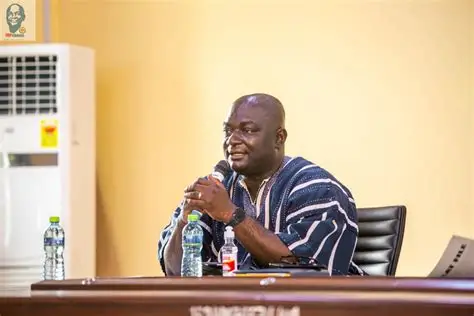Published
5 months agoon
By
Adubianews
Calls for caution are growing over Ghana’s telecom restructuring, as the Member of Parliament for Mpraeso, Davis Ansah Opoku, has urged the government to pause the proposed AT–Telecel merger. He warned that rushing the deal could deepen inefficiencies while further strengthening MTN’s market dominance.
Mr. Opoku noted that while he previously supported government efforts to rebalance the sector, a new alternative had emerged that deserved serious consideration.
According to him, Canadian multinational Rektron Group has presented proof of $150 million to KPMG, the government’s appointed transaction advisor, to acquire a majority stake in AT Ghana.
The Rektron proposal includes plans to clear AT’s debts, recapitalise its operations, modernise network infrastructure, and accelerate the rollout of 4G and 5G services.
“This is a credible investment that can restore competition and rebuild confidence in our telecom sector,” the MP stated. “Rushing into a merger of two fragile operators, while ignoring a well-funded investor with a clear plan, risks repeating the mistakes of expedience.”
The lawmaker also raised concerns about ongoing talks between the government and MTN on 5G deployment, despite the Next-Gen Infrastructure Company (NGIC) holding an exclusive nationwide licence for ten years.
He warned that permitting parallel arrangements could trigger regulatory confusion, undermine trust in government policy, and weaken competition.
Mr. Opoku called for transparency and due process, insisting that both the Rektron bid and the AT–Telecel merger should be subjected to open scrutiny.
“Parliament and the public deserve clarity on which option best protects taxpayer funds, creates fair competition, and ensures affordable and reliable service for Ghanaians,” he said.
He stressed that Ghana’s digital transformation rests on addressing the root causes of market imbalance, strengthening regulatory enforcement, and curbing MTN’s dominance. “Empowering the regulator and ensuring compliance with licensing agreements are key to safeguarding the future of our telecom sector,” Mr. Opoku added.

























